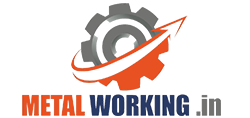While aerospace quality control workflows have greatly evolved over the past decade, due to the development of more complex parts, stricter tolerances, productivity pressures, challenges remain as to inspection efficiency.
The reason? Inspection processes often serve as bottlenecks that prevent optimized throughput.
An increasing number of aerospace part manufacturers and aircraft maintenance, repair, and overhaul (MRO) companies are turning to automated quality control solutions to accelerate inspection cycles—all while ensuring the structural integrity of produced components.
But until a few years ago, many businesses in the aerospace industry, such as Consolidated Precision Products (CPP), located in the United States, Mexico, and Europe and specializing in high-precision, geometrically complex aerospace components and sub-assemblies, had few options to automate the 3D-measurement process of parts.
Inspection teams were still forced to rely on metrologists who used conventional, inefficient methods to carry out 3D assessments. This was a far cry from the high performance, highly productive automated quality control promised.
The automation transformation: A turning point for CPP
“Automating our quality control processes was unavoidable,” explained Dash Tahiraj, Senior Manufacturing Engineer at CPP. “We were looking to accurately and quickly analyze all of our castings during their process cycles to identify non-compliant parts. This would also enable us to eliminate unnecessary processes, mitigate customer dissatisfaction, and spot trends for future workflow improvements,” he added.
CPP’s requirements were based on a vision to switch to advanced manufacturing solutions that could scale over time. In particular, the CPP team wanted to explore more modern 3D measurement solutions that could offer the high level of accuracy traditional approaches could provide—with a newfound level of speed and efficiency.
Elevating the performance of automated quality control with Creaform’s R-Series
After scouting the market for 3D measurement tools that could be seamlessly implemented in CPP’s automated QC workflows, the team opted for Creaform’s R-Series™ 3D scanning solutions.
“The CUBE-R™ industrial measuring cell, which embeds cutting-edge automation technology, was a viable solution for our quality control team to perform checks on our sand castings,” Dash said.
Designed to be integrated into any production environment for at-line inspections, the CUBE-R, offered as either a turnkey or completely customizable solution, would be able to automate 3D measurement capture without sacrificing accuracy—regardless of the number of assessments to carry out.
Removing the intricacies and friction of 3D scanning complex parts
Dash continued: “The CUBE-R uses Creaform’s MetraSCAN 3D-R™, a powerful robot-mounted optical CMM scanner, to quickly and reliably obtain 3D measurement data on the most complex and convoluted surface areas—simultaneously.”
“This system is perfect for scanning various casting sizes; using the optical tracker with dynamic referencing allows us to maintain measurement accuracy during the scanner and part movement. Interface simplicity and the ability to perform mass automated inspections after part programming was what we needed to take our inspection workflows to a whole new level.”
What CPP’s inspection processes look like today
Creaform’s solutions were easily implemented within CPP’s production line. From the get-go, user feedback was very positive. Dash also pointed out that Creaform’s expertise was “A+” and that troubleshooting services were always on time, with prompt responses.
Today, CPP leverages the CUBE-R and MetraSCAN 3D-R to scan most of its castings during multiple steps before they are shipped out to customers.
“The nature of our casting scan processes requires extremely accurate measurements and speed. The scanning process would have been extremely difficult without Creaform scanners,” Dash concluded.
This content was originally published on the Creaform website.



